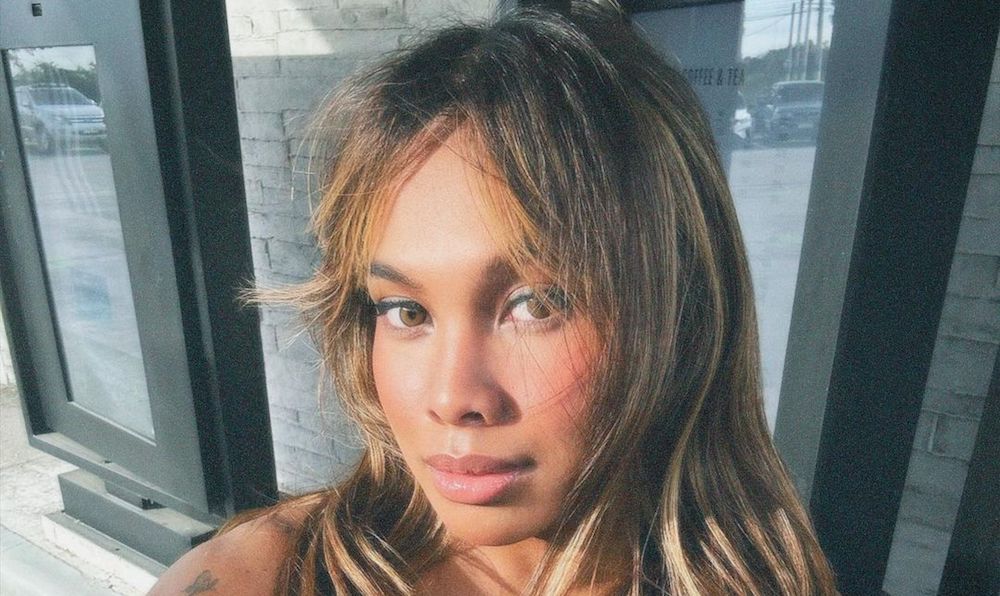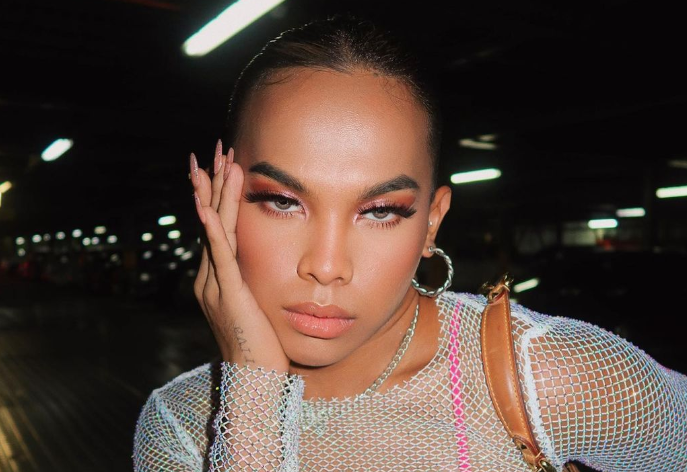Awra Briguela, the former child star turned vocal LGBTQ+ advocate, has once again sparked important conversations online—this time by addressing a deeply personal and often ignored issue: misgendering.
In a heartfelt post shared on her social media platforms, Awra directly called out the continued use of incorrect pronouns and labels in both public discourse and media coverage. Her message was clear and powerful: “I’m tired of being constantly misgendered. Respect is the bare minimum.”
This isn’t the first time Awra has faced misgendering, but according to those close to her, this time it struck a nerve. Despite living authentically and embracing her femininity for years, many—including journalists, talk show hosts, and even fellow celebrities—continue to refer to her with male pronouns or disregard her gender identity entirely.
“People love me for being outspoken, for being funny, for being myself… but when it comes to my identity, they suddenly forget who I am. Why is that?” she wrote.
Her statement quickly gained traction, with fans, LGBTQ+ rights advocates, and fellow artists rallying behind her. The hashtag #RespectAwra trended within hours, showing that her message had struck a chord not just with her followers, but with a broader audience tired of seeing trans and gender-nonconforming individuals disrespected.

Many praised her bravery in speaking out, especially in an industry where conformity is often expected, and image is tightly controlled.
“Awra is saying what many are too afraid to say,” tweeted one user. “This isn’t about being sensitive. It’s about basic human respect.”
Others, however, pushed back—some out of ignorance, and others out of outright bigotry. Critics questioned why pronouns mattered so much or accused her of seeking attention. In response, LGBTQ+ organizations and allies stepped up to educate the public, reiterating the importance of using correct pronouns as a fundamental sign of dignity and validation.
“Misgendering someone is not just a mistake—it’s a form of erasure,” said a representative from Metro Manila Pride. “It says, ‘I don’t see you as you see yourself,’ and that has real psychological effects.”
Awra’s journey in the entertainment industry has been anything but ordinary. Rising to fame as a young, flamboyant comedian on FPJ’s Ang Probinsyano, she quickly became a household name known for her boldness and comedic timing. But behind the glamour was a young person discovering and asserting their identity in front of millions.
Over time, Awra has embraced her feminine expression more openly, frequently appearing in women’s clothing, makeup, and using she/her pronouns in her online spaces. However, the industry and media have been slow to catch up.
“When people call me ‘he’ on TV, it feels like I’m being dragged back into a box I’ve already broken out of,” she said.
This latest call to action is not just about Awra herself—it reflects a larger issue faced by many Filipinos in the LGBTQ+ community, especially trans and non-binary individuals who experience daily invalidation in schools, workplaces, families, and even hospitals.
Awra’s courage in speaking up has reignited calls for stronger media accountability and better sensitivity training within the entertainment industry. Advocates are urging networks, reporters, and influencers to be more mindful and respectful when addressing queer individuals, especially those whose identities are already publicly known and expressed.

Aside from support from fans, several celebrities also voiced solidarity with Awra. Actress Angel Locsin, known for her humanitarian work, reposted Awra’s message with the caption: “Gender identity is not a debate. Respect is basic.”
Even politicians like Senator Risa Hontiveros, a long-time LGBTQ+ ally, tweeted:
“Awra is brave and right to demand respect. Misgendering is a form of violence. It must stop.”
Despite the criticism, Awra has made it clear that she will not back down or apologize for demanding what should be a given. In a follow-up story, she added:
“This isn’t just about pronouns. This is about dignity, safety, and being seen.”
She ended her post with a reminder to her followers:
“You don’t have to understand someone completely to respect them. Just listen, and learn. That’s all I ask.”
As conversations continue to unfold, many see Awra’s stand as a moment of empowerment—not just for herself, but for every young LGBTQ+ Filipino who’s ever felt unseen, unheard, or mislabeled.
Her message is loud, clear, and impossible to ignore: “I am who I say I am. Stop misgendering me.”
News
Hema Ji Breaks Silence After Dharmendra’s Passing: Social Media Reacts to Emotional Posts
The world paused for a moment when the news of Dharmendra’s passing spread. Bollywood’s “He-Man,” a figure larger than life,…
Hema Malini Health Rumors Rise After Dharmendra’s Hospital Scare: What’s Really Happening?
The first whispers came quietly, almost like a shadow sliding across the walls of social media. Hema Malini, the timeless…
A Quiet Ritual, A Shattered Heart: What Really Stopped Hema Malini at Dharmendra’s Side?
Hema Malini had lived a life in the public eye for more than five decades, but nothing prepared her for…
Bigg Boss 19 Episode 100: Tanya Sparks Intense Fight With Gaurav
Bigg Boss 19 Episode 100, airing on 1st December 2025, marked a milestone not only because it was the 100th…
Bigg Boss 19 Promo 1st December 2025: Contestants Face Media Questions Live
Bigg Boss 19 reached a new milestone with Episode 100, airing on 1st December 2025, and fans were treated to…
Bigg Boss 19 Drama: Amaal Malik Cries After Shehbaz Badesha Evicted
The Bigg Boss 19 house was filled with tension and anticipation as Shehbaz Badesha’s eviction was announced. While many contestants…
End of content
No more pages to load












